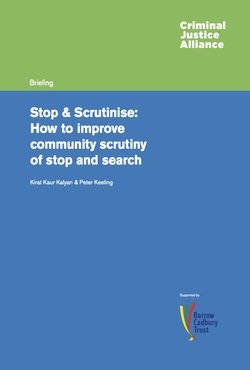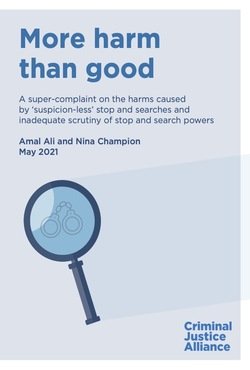By Kirat Kaur Kalyan & Peter Keeling
It is irrefutable that citizens should enjoy freedom of movement and an expectation of an uninterrupted private life; these protections underpin our democracy and uphold our fundamental human rights. These expectations are acutely relevant to the use of stop and search and it is essential that all powers exercised by the police are used lawfully, only when necessary and are proportionate, but more importantly, that they are seen to be so. The assessment and recommendations set out in this report provide a valuable commentary on the expectations communities have as to how the police should operate when tackling violent crime and upholding the law, as well as providing an important reminder that policing is underpinned by public consent. As well as providing a constructive interpretation on the value of stop and search powers and the importance of active monitoring arrangements, the report provides helpful examples of where police forces and communities have successfully come together to stimulate improvements in police operational activity as well as promote confidence that officers are acting in the public interest and with proper regard to the Codes of Conduct that govern their powers and the use of force.
London: Criminal Justice Alliance, 2019. 24p.



